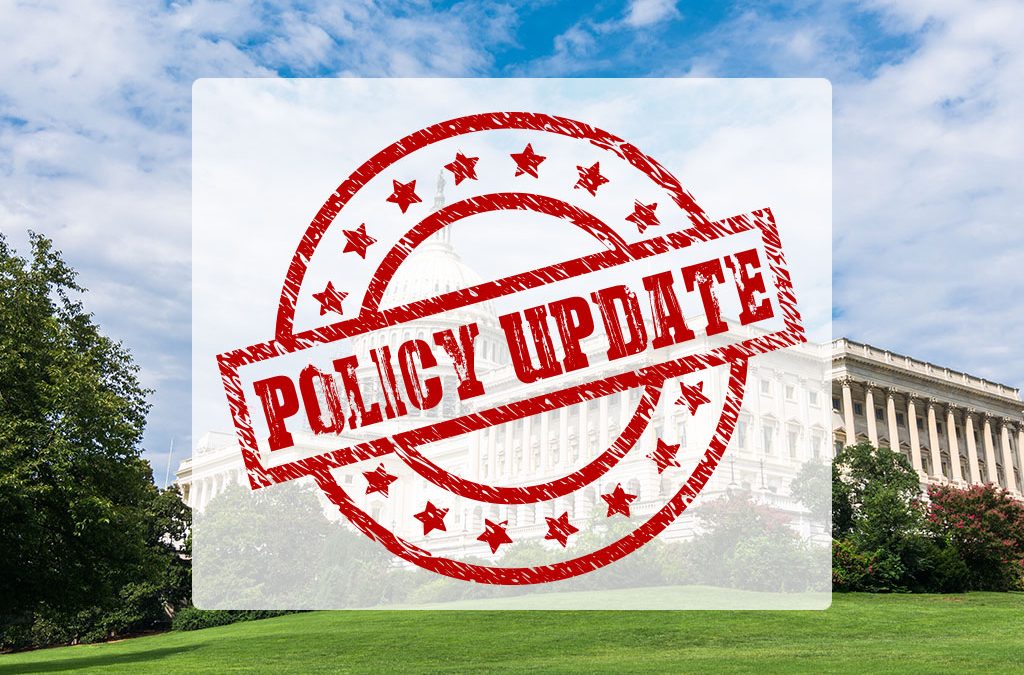House Republicans Continue Search for Speaker; Consequences of Vacancy Grow. Rep. Kevin McCarthy (R-CA) was removed from his position as speaker of the House on Oct. 3, days after he partnered with Democrats to pass a 45-day continuing resolution (CR) to avoid a government shutdown. Following the removal, Rep. Patrick McHenry (R-NC) became speaker pro tempore, a limited role in which he has sufficient power to facilitate the election of a new speaker but not to advance legislation. Rep. McHenry was designated for the role by Rep. McCarthy shortly after his January election; a post-9/11 rule requires the speaker to make a secret list of who would fill the post in the case of a vacancy, but the appointment only lasts until another speaker is elected.
Democratic Senators Urge IRS and Treasury Department to Close Ambiguities in Tax Code. Sens. Elizabeth Warren (D-MA), Sheldon Whitehouse (D-RI), Chris Van Hollen (D-MD) and Bernie Sanders (I-VT) wrote a letter to Treasury Secretary Janet Yellen and IRS Commissioner Daniel Werfel on Oct. 3 imploring the Treasury Department to “proactively use its rulemaking authority” to remove ambiguities in the tax code that they believe to be unfairly benefitting wealthy taxpayers and “threaten[ing] our government’s ability to raise important revenue.”
OECD Releases Draft Treaty on Pillar One Amount A; Yellen Signals United States Not Ready to Sign. On Oct. 11, the Organisation for Economic Co-operation and Development (OECD) published a draft multilateral convention, along with an overview and an impact assessment, to implement Amount A of the global profit reallocation plan. As part of the OECD’s larger Pillar One global tax regime, Amount A would affect companies with revenues above $21 billion and profit margins in excess of 10%, with some exceptions. OECD Director of the Centre for Tax Policy and Administration Manal Corwin stated that the treaty is not yet finalized, and that the publishing of the draft text represented an “intermediate step” that can serve as the basis for ongoing negotiations. The text was published despite reservations from some countries comprising the Inclusive Framework, citing issues like the convention’s treatment of withholding taxes and digital services taxes (DSTs). The OECD also announced plans to hold a technical briefing to resolve these issues and outline the specifics of the convention.
IRS Issues Guidance on Transferability of EV Credit. On Oct 6, the Internal Revenue Service (IRS) released Revenue Procedure 2023-33 concerning the transfer of tax credits for new and used electric vehicles (EVs) and other clean vehicles from the taxpayer to eligible entities. The credit, enacted in the IRA, allows taxpayers who received credits for placing clean vehicles into service to transfer their credit to an eligible entity, starting Jan. 1, 2024. This means that consumers who purchase eligible EVs after Jan. 1 would be able to claim their Section 30D or Section 25E credit immediately, as they could transfer their credit to the dealer they purchase their vehicle from at the point of purchase. The ability to transfer the credit is subject to rules and restrictions for both the dealer and the purchaser.
Smith, Schweikert Criticize IRS for Halting ERTC Claims Processing. On Oct. 3, House Ways and Means Committee Chair Jason Smith (R-MO) and Oversight Subcommittee Chair David Schweikert (R-AZ) sent a letter to IRS Commissioner Daniel Werfel expressing ongoing concerns over the agency’s implementation of the Employee Retention Tax Credit (ERTC) and its recent decision to temporarily halt the processing of ERTC claims. The letter states that the moratorium will exacerbate an already-large backlog of outstanding claims and delay legitimate claimants from receiving payments. The letter also states that the IRS has not yet developed a plan to both combat fraud and improve efficiency during the moratorium, stating, “it remains to be seen what changes will be made … to improve vetting measures for fraudulent claims while also making the processing time more efficient to lessen the backlog.” The letter requests that the IRS respond by Oct. 17 to inquiries regarding the current ERTC claims backlog, the agency’s plan to quicken processing times, and the fraud prevention measures the IRS will employ to combat ERTC fraud.

About Brownstein Hyatt Farber Schreck
Brownstein Hyatt Farber Schreck is a unique law firm. Walk into any of our offices and you’ll immediately recognize a different type of energy. Complacency doesn’t have a place here. Flexibility and inspiration do. Our culture and enthusiasm allow our attorneys, policy consultants and legal staff to stay ahead of our clients’ needs and provide them with the resources they require to meet their business objectives.
We hope you've enjoyed this article. While you're here, we have a small favor to ask...
As we prepare for what promises to be a pivotal year for America, we're asking you to consider becoming a member.
The need for fact-based reporting of issues important to family owned businesses and protecting a lifetime of savings has never been greater. Now more than ever, successful families and family owned businesses are under fire. That's why Family Enterprise USA is passionately working to increase the awareness of issues important to family owned businesses built on hard work, while continuing to strengthen our presence on Capitol Hill. The issues we fight for or against with Congress in Washington DC include high income tax rates, possible elimination of valuation discounts, increase in capital gains tax, enactment of a wealth tax, and the continued burden of the gift tax, estate tax and generation skipping tax.
Family Enterprise USA promotes generationally owned family business creation, growth, viability, and sustainability by advocating for family businesses and their lifetime of savings with Congress in Washington DC. Since 2007, Family Enterprise USA has represented and celebrated all sizes, professions and industries of family-owned enterprises and multi-generational employers. It is a bi-partisan 501.c3 organization. Family foundations can donate.
#incometax #CapitalGainsTax #R&DExpensing #DontPunishSuccess #GrantorTrusts #StepUpinBasis #likeKindExchanges #AcceleratedDepreciation #EstateTax #Deathtax #wealthtax #taxLegislation #CongressionalCaucus #incometaxrates #repealestatetax #AdvocatingForFamilyBusinesses #FamilyOwnedBusiness #WomenOwnedBusiness @FamilyEnterpriseUSA #FamilyEnterpriseUSA #FEUSA

